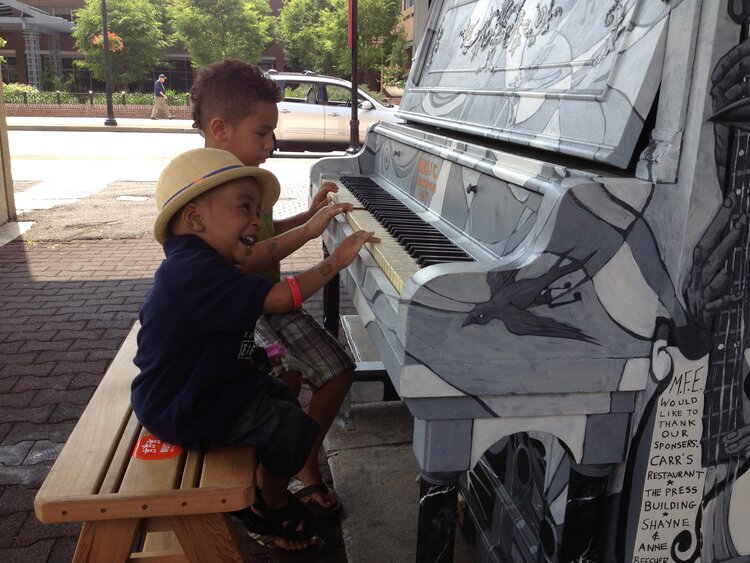
Jazz, blues and basketball are very similar in feel, vibe, attitude and practice. To start, they are all Black dominated cultures. They also require ongoing communication and cooperation among team mates and band mates as both players and musicians are literally making things up as they go. While there is structure that provides some guidelines around a piece of jazz and, for that matter, a particular system of offense in basketball, that structure simply provides a loose foundation for the song or the offense. Using that foundation as a jumping off point, the rest is improvisational.
It’s the challenge of balancing that structure with the freedom to improvise and create on the spot that is the Holy Grail of all three. When that balance is achieved, the result is transformational art and pure magic. They are also similar in how players and musicians are much less interested in the color of the team mate or band mate than whether he or she can play. As John Hammond (1910 – 1987), the legendary record producer, civil rights activist and music critic said, “I hear no color in Jazz.”
Learning how to improvise, whether in jazz, blues or basketball, provides a great foundation for being able to navigate various situations and circumstances off the bandstand and courts of play. For example, when you find yourself a minority in a different or unfamiliar environment or culture where the rules are made by others, you must thoughtfully improvise to survive. Improvisation is required because you do not control the social, cultural or situational environment. If the attitudes, behaviors, mores and communication nuances are new or different from the culture or environment within which you are comfortable, you must open your mind to those differences and improvise to accommodate them. To succeed as a team or band or, for that matter, a company or organization, everyone must find a way to navigate differences and come together as a unit.
As white men, virtually every single situation we encounter occurs in an environment where the basic rules of engagement have been established and maintained by white men. To put it in basketball terms, as white men, we are playing all of our games on our “home” court. When it’s your home court, you make the rules. As the visiting team, you have to accept, understand and navigate those rules, regardless of how different they may be from the rules at your home court. If you are unsuccessful in navigating those unfamiliar rules, you lose and have to sit on the sidelines or go home.
This challenge of having to navigate a culture or environment that you are unfamiliar with was one of the most powerful lessons I learned through basketball, as I often found myself on a team in which I was in a distinct minority. As a white person in the basketball culture, I learned that I was not in a position to dictate the rules of engagement or interaction. Navigating an unfamiliar culture with different rules is a challenge, to say the least. You are always on a knife’s edge regarding what you say and how you act because, in essence, you are the low man on the totem pole. But you have no choice. That’s your reality. If you want to survive and succeed, you have to figure it out.
That said however, I also knew that once I left my basketball environment, I could return to a comfortable environment in which people who looked like me made all the rules. Think about how difficult, challenging and absolutely exhausting it must be for people of color to have to navigate an environment and culture in which all of the rules of engagement are made by white men. And to have to do that virtually every hour of every day of every year for your entire life? Virtually every aspect of American culture, from our school systems to our legal system, to health care, to government itself has been established and maintained by white males. For people of color, having to navigate that pervasive and unrelenting system is a full-time, 24/7/365/days a year job. That is the reality for POC in America. Talk about exhausting! That is something that white people should acknowledge, thoughtfully consider and attempt to understand because it is something we virtually never have had to deal with.

